The Africa Cup of Nations is one of football's most open and captivating tournaments and it has reached the semi-finals stage with Cameroon vs Egypt. AFCON 2021 has been showcasing the continent's best talents, including a host of Premier League stars, and pulling out quite the few surprises too. Here's how to watch the 2021 Africa Cup of Nations and watch every AFCON live stream wherever you are this February.
The 33rd edition of the AFCON had been due to take place last year, but was postponed due to the Covid-19 pandemic, meaning that, like last year's Euro 2020, the tournament has been left with a somewhat awkward and confusing title.
Hosted by Cameroon across five cities the 24-team tournament has been playing out over four weeks in January and February 2022, with Algeria the defending champions now out of the running.
Watch out for Premier League favourites like Mo Salah, Sadio Mane, Wilfred Zaha, Ndidi, Kelechi Iheanacho and many more, as well as star players from across the rest of Europe's top clubs as Africa battles it out to show who's best.
Here's how to watch an AFCON 2021 live stream from anywhere - including how to watch the Africa Cup of Nations for free. We also have key information on the AFCON 2021 fixtures, schedule, groups, format and the Africa Cup of Nations qualified teams.

How to watch a AFCON 2021 FREE live stream online in the UK
How to watch AFCON 2021 from outside your country
Scroll down for all the ways you can watch AFCON 2021 online in a number of countries around the world. But first, you should know that if you're abroad at any point during the tournament, you probably won't be able to watch the footy like you normally would at home.
This is because of geo-blocking, a digital restriction that means certain streaming services are only accessible in the region they're based in. Don't sweat it, though, as you've got the option of using a VPN to tune to your preferred coverage wherever you are.
Use a VPN to live stream AFCON 2021 from anywhere
How to use a VPN
Using a VPN is as easy as one-two-three...
1. Download and install a VPN - as we say, our top choice is ExpressVPN
2. Connect to the appropriate server location - open the VPN app, hit 'choose location' and select the appropriate location.
3. Go to the broadcaster's stream - head to your home broadcaster's site or app and watch as if you were at home - so that's BBC iPlayer the UK or possibly Sling or FuboTV for the US.

How to watch an AFCON 2021 live stream in the US

How to watch AFCON 2021 soccer in Australia
How to watch AFCON 2021: live stream soccer in Canada
Who has qualified for AFCON 2021 and who are the favorites?
Following Egypt's back-to-back-to-back AFCON titles triumph between 2006 and 2010, the tournament has had five different winners and nine different finalists, underscoring just how difficult it is to predict a tournament winner can be.
Holders Algeria, who boast the dual attacking threat of Manchester City's Riyad Mahrez and West Ham's Saïd Benrahma are nevertheless the favourites with the bookies.
While many pundits are tipping the Mohamed Salah-led Egypt to triumph or the talent-packed Senegal who boast Salah's Liverpool teammate Sadio Mané, as well as Edouard Mendy and Cheikhou Kouyate, a smart bet could be the Ivory Coast, who will have Wilfried Zaha, Nicolas Pepe and Eric Bailly to count upon, as well as one of the world's most in-form strikers with Ajax's on fire Sebastien Haller.
Group A
Group B
Group C
Group D
Group E
Group F
AFCON 2021 fixtures: upcoming schedule
Quarter-finals
Saturday January 29
Gambia vs Cameroon - 5pm WAT local time / 4pm GMT / 11am EST / 8am PST / 3am AEDT (Japoma Stadium, Douala)
Burkina Faso vs Tunisia - 8pm WAT local time / 7pm GMT / 2pm EST / 11am PST / 6am AEDT (Roumde Adjia Stadium, Garoua)
Sunday January 30
Egypt vs Morocco - 5pm WAT local time / 4pm GMT / 11am EST / 8am PST / 3am AEDT (Olembe Stadium, Yaounde) - Live on Sky Sports Premier League
Senegal vs Equatorial Guinea - 8pm WAT local time / 7pm GMT / 2pm EST / 11am PST / 6am AEDT (Japoma Stadium, Douala)
Semi-finals
Wednesday February 2
Semi-final 1: Quarter-final 1 winner vs Quarter-final 4 winner, 8pm WAT local time / 7pm GMT / 2pm EST / 11am PST / 6am AEDT (Japoma Stadium, Douala)
Thursday February 3
Semi-final 2: Quarter-final 2 winner vs Quarter-final 3 winner, 8pm WAT local time / 7pm GMT / 2pm EST / 11am PST / 6am AEDT (Olembe Stadium, Yaounde)
Third-place match
Sunday February 6
Semi-final 1 loser vs Semi-final 2 loser, 5pm WAT local time / 4pm GMT / 11am EST / 8am PST / 3am AEDT (Stade Ahmadou Ahidjo, Yaounde)
2021 AFCON Final
Sunday February 6
Semi-final 1 winner vs Semi-final 2 winner, 8pm WAT local time / 7pm GMT / 2pm EST / 11am PST / 6am AEDT (Olembe Stadium, Yaounde)
AFCON 2021 format: how does it work?
The African Cup of Nations was expanded from 16 teams to 24 for AFCON 2019, and the same format is in place for this year's competition.
The teams are split into six groups of four, which were loosely dictated by each nation's performances in qualifying.
Each team plays the other teams in its group once, and the top two in each group automatically qualify for the knockout stages. However, of the six teams that finish third in their group standings, the four strongest also go through.
The knockout phase begins with the Round of 16, followed by the Quarter-Finals, Semi-Finals and, eventually, the 2021 AFCON Final is on Sunday, February 6.
What is the Africa Cup of Nations?
First held in 1957, the now biennial tournament is the most prestigious football competition in Africa and is organised by the Confédération Africaine de Football (CAF).
With its teams usually opting for attacking play, and a predilection for open, unpredictable results, it's widely regarded by many soccer fans as the most entertaining men's international football tournament there is.
From Ivory Coast’s marathon shootout win in 1992 after 10 rounds of sudden death spot kicks, to Zambia’s emotional success in 2012, the competition never fails to throw up memorable moments.
Where is AFCON 2021 being held?
This year's tournament takes place across six venues in five Cameroonian cities, with the Olembe Stadium and the Stade Ahmadou Ahidjo hosting matches in the capital Yaoundé.
The bulk of the group stage matches will be played out at the Japoma Stadium in Douala, the Limbe Stadium in Limbe, the Kouekong Stadium in Bafoussam and the Roumde Adjia Stadium in Garoua.
The opening match of the tournament as well as the showpiece final are both set to take place at the newly built 60,000 seater Olembe Stadium in the capital.
Who won AFCON 2019?
Algeria are the defending champs this time out, after winning the Africa Cup of Nations for the second time in their history after beating Senegal in the 2019 final in Cairo, Egypt.
The Algerians triumph came via a freak early goal after Baghdad Bounedjah's shot took a huge deflection off Salif Sane and looped over despairing goalkeeper Alfred Gomes for what would prove to be the game's crucial moment.
Nreal’s consumer-focused AR glasses are coming to the UK - but they have one limitation
UK cell carrier EE is partnering with Chinese AR startup Nreal to bring the Nreal Air AR glasses to the UK. The glasses have been available in China, Japan, and South Korea since December 2021 , and will come exclusively to the UK carrier “later this spring” according to EE.
The Air glasses are the (relatively) affordable, consumer-focused sequel to the Light glasses from Nreal. They feature the equivalent of an up to 201-inch 1080p screen (from six meters away) and a slim, lightweight look designed not to stand out too much compared to regular sunglasses.
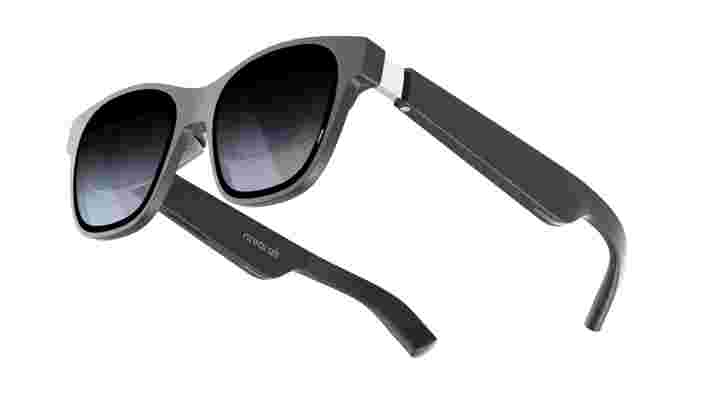
Nreal says that the glasses are focused on consumer use cases such as watching movies, shows, and playing games. The Nreal Air will also have mixed reality functionality called the “MR Space'' that will allow users to pin app windows in a 3D space within the glasses.
Despite the “Air Casting” moniker used to describe the glasses’ screen mirroring tech, the glasses have no built-in battery, and thus will plug into compatible smartphones via an included USB-C cable. The company’s previous glasses, the Light, used DisplayPort over USB-C as its protocol, and thus was compatible with any other device that used DisplayPort over USB-C. We’ve reached out to the company to see if this compatibility is also in the Air glasses.
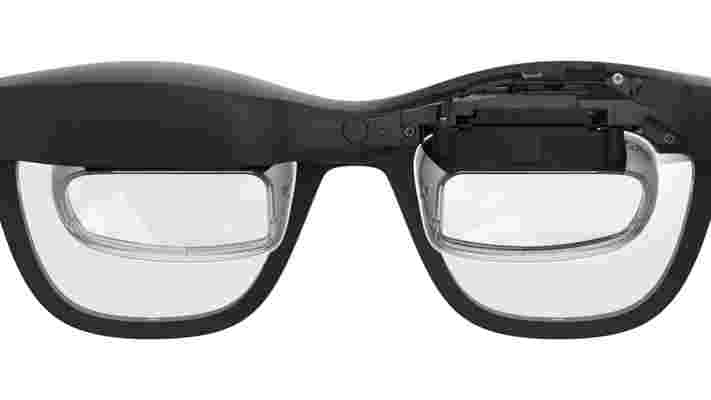
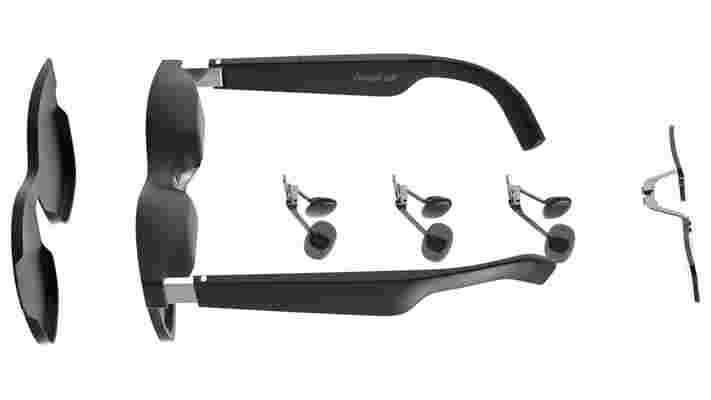
Other notable details are the included prescription lens frames for nearsighted folks, a hard carrying case for transport, three included nose pads for adjustable comfort, open-ear speakers and dual microphones for audio, and angle adjustment for viewing the glasses’ screens. Nreal also promises five hours of screen mirroring battery life for the connected smartphone.
Take a massive screen on the go
The last time we saw the glasses was at CES 2020 with an early development sample. The Air glasses look significantly more stylish these days, so you won’t look like a total dork wearing them in public.
At a virtual 131 inches, while mirroring from a smartphone, you’ll be able to take a screen bigger than most TVs with you wherever you want. AR and MR glasses have attempted this sort of thing in the past (you may remember Google Glass ), but those ended up being expensive, enterprise-focused, and not very useful machines, at least for consumers. Nreal has even had mixed success with its own offerings, but the third time could be the charm for the startup.
Pricing details are forthcoming, but as previously mentioned, Nreal wants the glasses to be (comparatively) affordable for the average interested consumer. Most big OLED displays can cost thousands of dollars, so we’re excited to see what a consumer-focused pair of AR glasses can do.
And we await news of when the glasses will arrive on US shores.
Apple Airplay 2 vs Chromecast vs Spotify Connect: which is best for you?
Apple Airplay 2, Chromecast and Spotify Connect rule the roost when it comes to music casting technologies. All three are capable of excellent results when streaming music from a smartphone or tablet to your wireless speakers , but they’re significantly different to use and favour different technologies.
Given the choice, which music casting technology is the right one for you? Let’s dig a little deeper…
Apple AirPlay 2
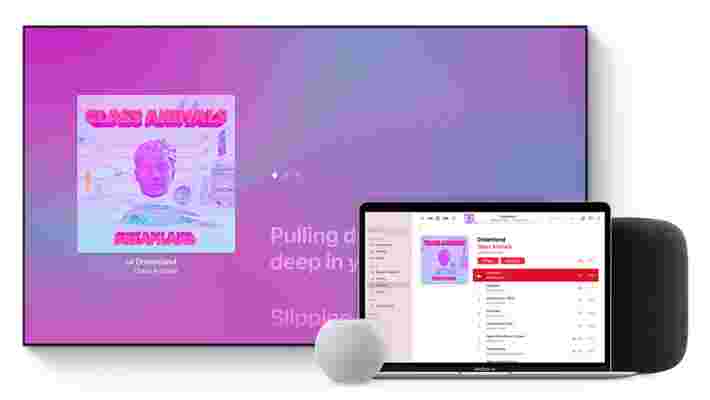
Versatile AirPlay 2 is a first class music streaming technology, albeit for Apple users only. It enjoys broad hardware support with lots of AirPlay 2 speakers on the market and has a useful whole home audio option. Lossless audio quality is high, but it can impact your mobile’s battery.
For
Against
An evolution of Apple’s original Airplay, Airplay 2 allows iOS users to play their music directly from their iPhone or iPad to any Airplay 2 compatible device. It’s a pain free casting option built-into every iPhone, iPad or Mac computer running iTunes.
AirPlay 2 receiving compatibility extends beyond the best AirPlay speakers and smart speakers. The technology can also be found in a growing selection of TV s, home cinema receivers and smart speakers, from manufacturers other than Apple. You can also use it to create a whole home audio network.
AirPlay 2 isn’t just for music. It also supports screen mirroring, so you can share snaps, or stream the video from a streaming service.
AirPlay was originally touted as a Bluetooth alternative, routing audio direct to a connected speaker over Wi-Fi. AirPlay 2 is a smarter party animal. You can stream to multiple devices, at the same time, or a specific speaker within a larger connected group.
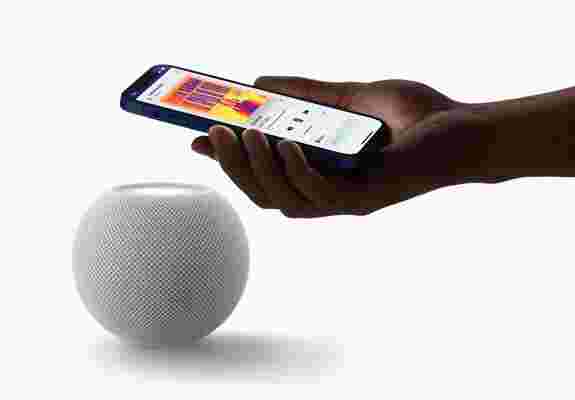
AirPlay 2 streams music and video, your app will indicate compliance with an appropriate icon and quality is reassuringly high. Lossless audio is available from iPhones running iOS 14.6 up.
AirPlay 2 is also backwards compatible with original AirPlay speakers, although you won’t be able to group first gen AirPlay gadgets into a multiroom AirPlay 2 group.
If you have two Apple HomePod or HomePod mini speakers , AirPlay 2 allows you to pair them so they can act as stereo speakers . You’ll have access to HomePod pairing and multiroom if you’re running iOS 15. Siri, Apple’s Voice assistant, is available and able to play back tracks to your designated output device (or devices).
Another cool feature allows groups of listeners to contribute to a music queue, so they can all play DJ. You can also stream to Apple TV devices (running TVOS 11.4 up). Hardware compliance is broad. Audio brands in the AirPlay 2 camp include Bluesound, Bose, Denon, Marantz, Naim, Sonos and Yamaha. TV support comes from LG, Roku, Samsung, Sony and Vizio.
Google Chromecast
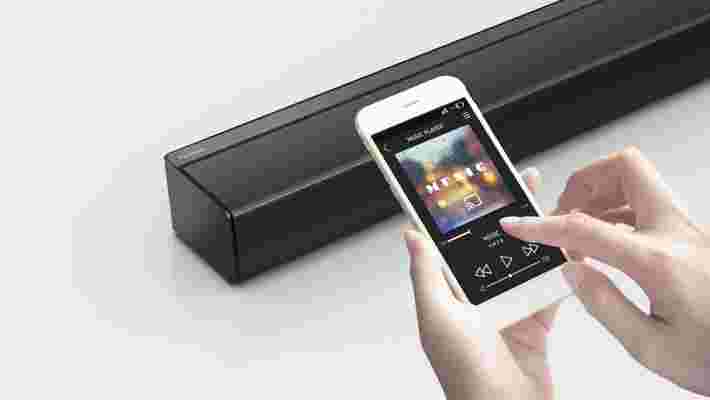
This low cost music streaming and multiroom casting option is built-into a large number of Android TVs , and available via inexpensive dongles. It sounds fine, but operationally is a little clunky. Chromecast can also be used to cast video content, from compatible apps.
For
Against
While AirPlay 2 is exclusively for Apple users, Google’s Chromecast streaming platform is rather more accessible.
You can cast from both Android and iOS smartphones to Android TVs with Chromecast built in (no additional hardware required), TV sets with a plug-in HDMI Google Chromecast dongle, or Google enabled smart speakers and other audio kit.
Just open a Chromecast compatible app (identifiable by the TV with radiating casting curves) to tap and play to a chosen device.
Apps which support Chromecasting include YouTube, Netflix , Disney Plus , and more. Audio streaming service support is similarly extensive, and with Spotify , Apple Music , Tidal , Amazon Music and Deezer enabled. Both Google Play Movies and Music are onboard too.
Chromecast HDMI dongles are relatively inexpensive; they’ll take up one of your HDMI ports and require micro USB power to work. A Chromecast dongle with Google TV built-in is comparable to a Fire TV stick when it comes to functionality and price.
Naturally, Chromecast built-in can be found in Google’s own smart speaker range, including the Google Home , Google Home Mini and Google Home Max , as well as a range of other manufacturer’s hi-fi kit, including Sony, Panasonic, LG, Philips, JBL and Naim Audio.
When not receiving a stream, a Chromecast device drops into a picturesque ambient mode. There’s no user interface on the standalone dongles, unless you’re using the step-up Chromecast with Google TV gadget.
While Chromecast can mirror your smartphone, it’s not actually streaming from it when you cast. Instead, it points the Chromecast device to the content you want to play online. Your smartphone acts like a remote control. Spotify Connect uses the same technique.
Chromecast supports voice commands, but only via Google Assistant.
Chromecast can also be used for multi-room audio, playing music in sync to multiple speakers from compatible brands, using the Google Home app.
The downside is Chromecast feels operationally clunky, even after multiple revisions. But it’s easy to use and widely supported, and you can enjoy inexpensive multiroom audio, with no subscription fees required.
Spotify Connect
Supremely easy to use, and capable of excellent fidelity, Spotify Connect is a great all round music casting option. It enjoys wide hardware support too, so incorporating it into your Spotify at home music routine should be a doddle.
For
Against
Spotify Connect allows Spotify users to stream their music to Spotify compatible Wi-Fi connected speakers, with minimal fuss.
At first glance, Spotify appears to mimic Bluetooth. Both achieve the same aim, wirelessly streaming from smartphone to a target audio system. The big difference is quality. A direct Wi-Fi connection using Spotify Connect sounds cleaner and more dynamic than regular Bluetooth.
To get up and running, you’ll need the Spotify app, and a Spotify Connect compatible receiving device. Much like Chromecast, it doesn’t actually send music from your phone to a sound system, but rather directs your target player to your music online. Apple AirPlay, by comparison, streams from the device in your hand to the audio receiver.
Compatible devices include AV receivers from Denon and Marantz, Sonos multiroom speakers, Roku and Fire TV streaming devices, and Amazon Alexa smart speakers .
Spotify connect also works from PCs and Macs running the Spotify app.
Overall usability is excellent. Within the Spotify app, you’ll see a list of kit on the same Wi-Fi network of your smartphone, under the Devices graphic. Just select the one you want to stream: job done.
When streaming on a home Wi-Fi network, most users should leave their setting on Automatic, as this enables the app to better manage available bandwidth. You can manually select high or Very high though, if you prefer though. There’s also an Everywhere multi-speaker streaming option, for whole home audio.
Wireless speaker deals
Need some wireless speakers to cast your music to? Whatever casting technology you choose, we've rounded up the best wireless speaker deals from around the web right here: